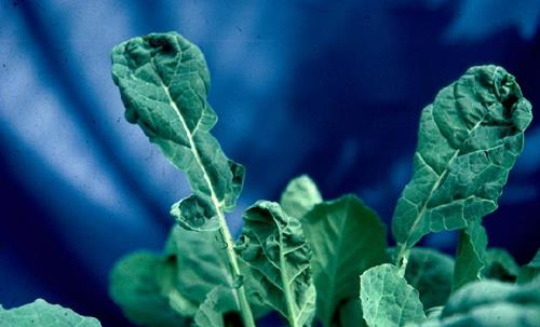Although an increasing number of farmers understand the importance of boron in driving strong yields, experts warn that boron still goes underused and forgotten on many farms – especially for its vital part in the growth stages of oilseed rape.
“People know they need to apply micronutrients, but boron is often overlooked despite the high rate of boron deficiency in UK soils,” says Natalie Wood, Arable Agronomist at Yara. “Boron is particularly important for pollen formation and viability, which directly affects the yield in all flowering crops, like oilseed rape.”
Symptoms of boron deficiency in oilseed rape include hollowness, deformation and necrosis, often presenting as discolouration on the leaves, brittle texture, and lesions across the plant.
When timing a boron application for oilseed, it has historically been done at onset of stem extension. Early tissue-testing is a recommended method to ensure any problems and deficiencies in the crop are identified. Farmers can then get a sense of how their crop is performing and adjust their boron applications accordingly.
Ms. Wood identifies boron toxicity as a common anxiety amongst farmers, particularly with oilseed rape, but downplays how often it occurs. “While we should take it into consideration, the reality is that boron toxicity only really occurs with very large applications. It would take multiple kilos to cause an issue whereas with our foliar products you are applying grams.”
The recommended rate for applying boron is three litres per hectare for oilseed rape.
Trends confirm that boron awareness is starting to grow. In 2017, 58% of oilseed samples tested were deficient in boron. In 2018, this number fell to 54% – a slow reduction, but a clear indicator that farmers are perhaps starting to take boron deficiency more seriously.
“Awareness is improving but it’s clear that the perception of boron still needs to shift,” concludes Ms. Wood, “We need to give boron that same level of consideration. Implementing boron application into your spring nutrition programme gives oilseed rape the best chance to perform and increases the likelihood of stronger yields.”




